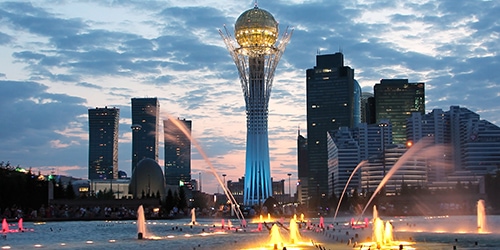Milestones | Commonwealth Of Independent States

In October, Belarus, Kazakhstan and Russia put the finishing legal touches to the creation of the Eurasian Economic Union, which comes into being on January 1, 2015. For some observers, the EEU is the latest proof of president Putin’s nostalgia for the former Soviet Union, whose demise in 1991 he famously described as one of the 20th century’s greatest calamities. Others merely see the EEU as proof Russia is determined to plow an anti-Western path even though Ukraine’s tense relationship with Moscow means the union bears little resemblance to the entity that Michael McFaul, former US ambassador to Moscow, once described as Putin’s key priority.
“Although the hope is that the EEU will become a base for establishing free-trade agreements with other jurisdictions, including the EU, its scope will be rather less than planned,” says Julian Cooper, an associate fellow at Chatham House in London.
Aside from Ukraine, of the other members of the Commonwealth of Independent States, only Armenia wishes to join the EEU. Kyrgyzstan wishes to join the customs union of the EEU but not the Single Economic Space, which guarantees free movement of goods, services, capital and labor. And progress toward the free movement of capital and labor remains sluggish, reflecting the extent of the centrifugal forces that tore apart the Soviet states.
Kazakhstan, which insists the EEU will never be anything other than a purely economic union, is balking at extending its remit to Nagorno-Karabakh, a de jure part of Azerbaijan that has been a de facto part of Armenia since the 1992–1994 war. And oil-rich Azerbaijan continues to resist Russian pressure to join because of suspicions Moscow favors the Armenians.
Cooper says it is a mistake to see the EEU as purely Putin’s creation: Kazakhstan and Belarus have long recognized that it will boost their international bargaining power.
“Bear in mind that Nursultan Nazarbayev (president of Kazakhstan) and Alexander Lukashenko (president of Belarus) have been in power a long time and have a very good idea of where their interests lie,” he argues.
So just how effective will be the EEU be? “The hope is that eventually the EEU will boost trade and foreign direct investment, but with Russian trade so dominated by energy, that may take time. Belarus and Kazakhstan could end up being the main beneficiaries,” says Cooper.



